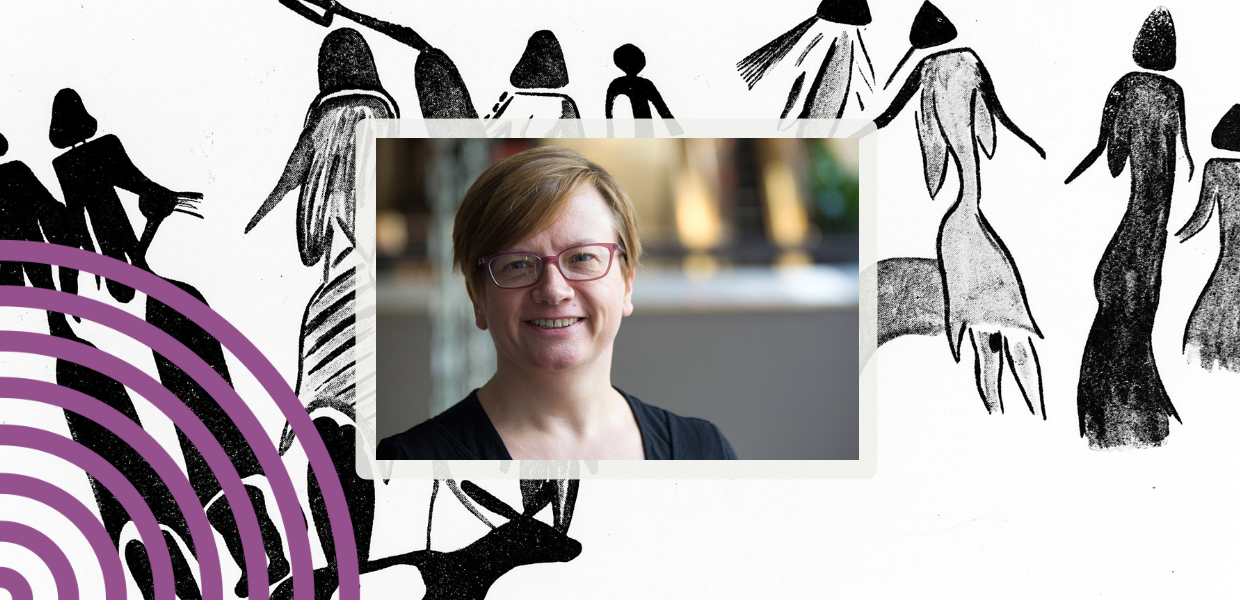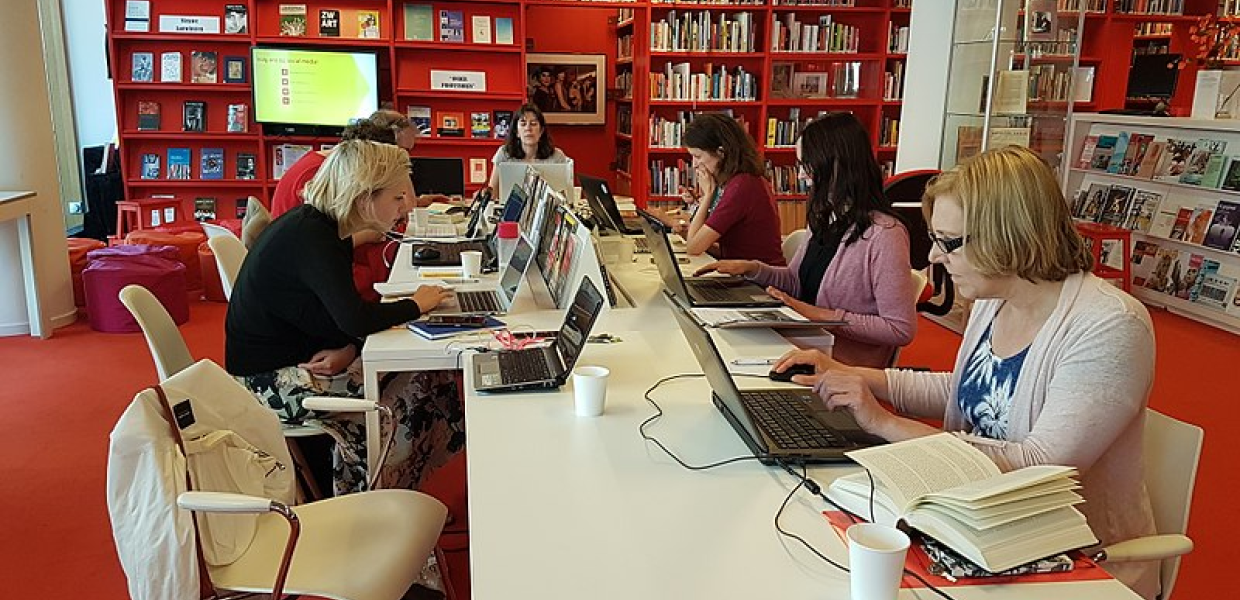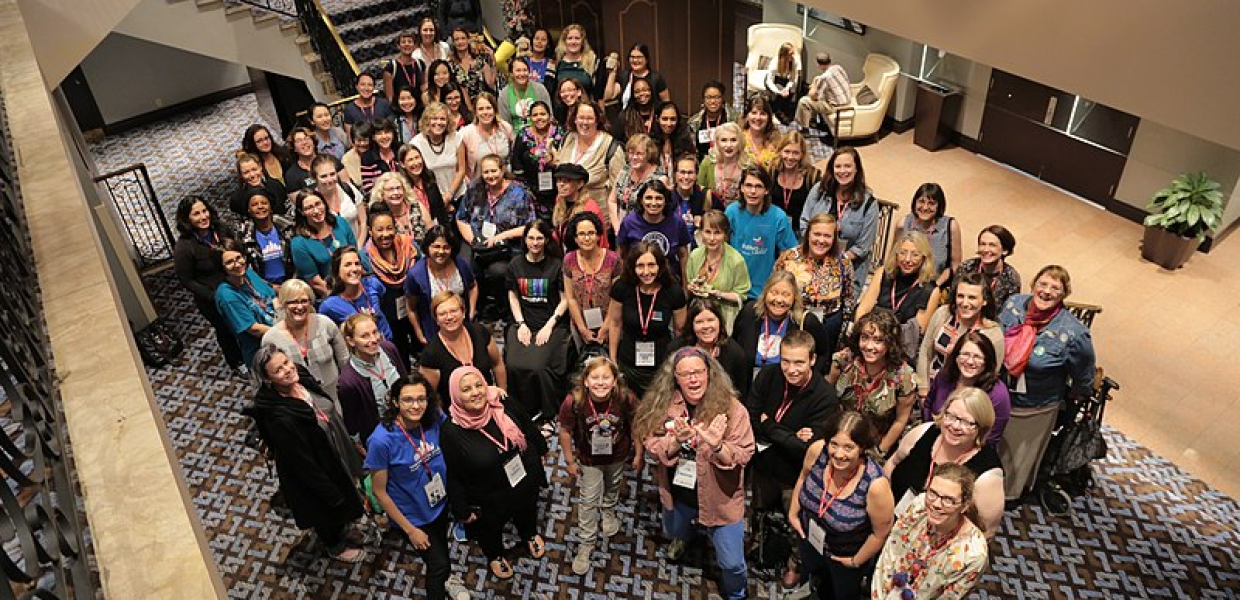How did you get into your field?
I studied art history in the mid-1990s. During my studies, I became fascinated by the internet and the world wide web and learned to create websites with endearingly hand-crafted HTML. I wrote a Master's thesis about internet-based art (probably the first one ever!), which around 2000 led me to the job of archivist for V2_ Institute for the Unstable Media - a pioneering organisation in new media arts in Rotterdam - and in 2007 as collections officer for the former Netherlands Media Art Institute (currently known as LIMA), a distributor of video and new media art (I still have a strong passion for net art and new media art, which I think are scandalously underrepresented in contemporary art collections around the world!). In later jobs - as project lead for ARTtube, a video platform for Dutch museums, and in various positions for the Wikimedia movement - I have been able to work on other passions of mine: online representation of cultural heritage, and connecting heritage across collection silos.
What are the challenges for women in the workforce today? What can be done to improve matters?
I think the challenges are well-known - work-life balance and equal appreciation and pay. I do think we are going in the right direction; today, these topics are definitely publicly discussed much more than when I entered the workforce in the late 1990s, and we should keep discussing them and fighting for them. I have always appreciated how, in my own networks in the Netherlands, part-time work is considered normal. In some of my previous jobs, even senior managers and directors have worked part-time, which goes a long way in giving people - both men and women - space and assurance to dedicate time to care for self and others, to their families and social lives.
Do you feel that women are sufficiently empowered and present in leadership positions?
I prefer to talk about empowerment, growth and appreciation. Do we reward every (female) professional enough, so that they can grow and sustain themselves financially and autonomously? Personally, I like to work in situations where there is not a lot of hierarchy and where people can grow and are appreciated in positions that suit their interests and skills. Sometimes that involves leadership in the narrow sense, sometimes people management, sometimes mentorship, sometimes deep engagement with content and technology, sometimes bridge-building, or other skills. Leadership by itself feels like a very 'masculine' concept to me and I think that many positions that are about care, maintenance and connection are equally valuable. In that regard: yes, I do think we should continuously work to make our organisations more rewarding environments, with room for growth beyond leadership for people with diverse skill-sets. That said, I simply also want to see more women in formal leadership positions indeed - many of the best leaders I know are women.
What message would you share with women in the sector today?
Celebrate each others' successes. Mentor younger people. Embrace all the diverse and unique ways in which we build lives and careers that are rewarding to us - especially if people make different choices than you would. On the individual level, I can recommend one attitude that still takes me some effort to master, but it continues to help me tremendously: don't take things personally. It is so liberating!
What digital communities or networks do you find rewarding?
Definitely the Wikimedia community! I'm very happy to call many Wikimedians my friends. Volunteers of Wikimedia projects are often very bright people; sophisticated and passionate about knowledge, and surprisingly good at exuberant dance parties, beer tasting, and karaoke. I mostly interact with volunteers active on GLAM-Wiki projects (collaborations between cultural institutions and Wikimedians), where I have met many fascinating, dedicated 'laypeople' who display the deepest online cultural participation I've ever seen. Where else would you find volunteers who describe hundreds of thousands of artworks on Wikidata in their free time, who organize major worldwide heritage photo competitions, or scour online collections of digitised books for underrepresented female artists who deserve Wikipedia articles?



